I have used Amazon affiliate links on this page. As an Amazon Associate, I earn a commission from qualifying purchases at no added cost to you. Thank you!

Table of Contents
Is Duckweed an Aquarium Plant?
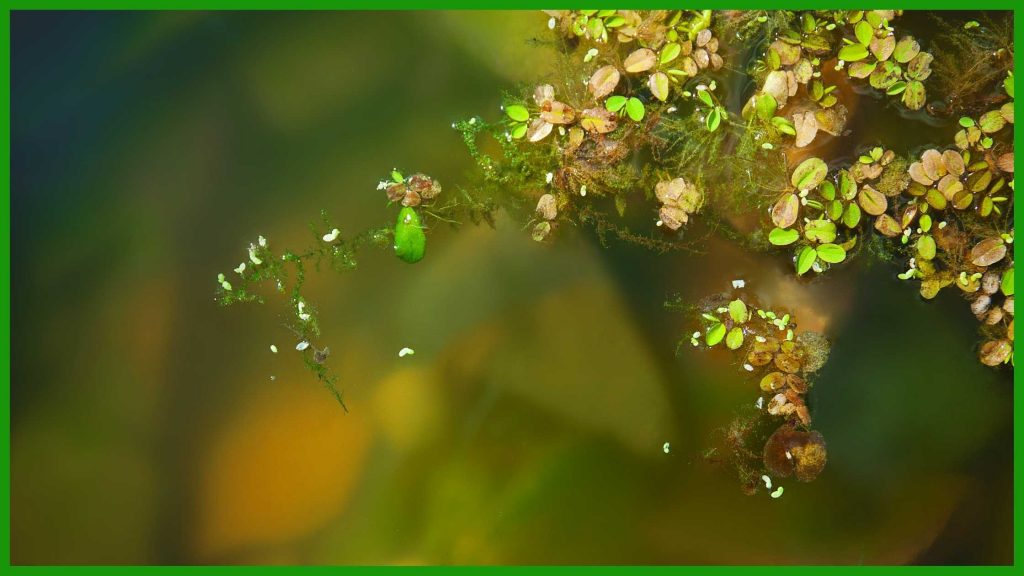
Duckweed is indeed a popular aquatic plant in the aquarium hobby. They add an extra dimension of greenery to your planted tank. Mainly used in nano planted tanks with no high water flow or disturbance on the surface duckweed provides excellent habitat for tiny fish and single specimens like betta fish. These tiny, floating aquatic plants can act as a natural filter by excessively removing poisonous substances like ammonia, nitrite, and nitrate from your aquarium. If optimal aquarium lighting, temperature, and dissolved nutrients like fish waste and residual food are presented, your duckweed colony will start to thrive in your aquarium or in your pond. Hence, you will have to remove overgrown Duckweed and take necessary control measures. Otherwise, these fast-growing tiny plants will take over the surface of the water and block oxygen and light from reaching fish and other plants!
The Duckweed species popular in Aquarium hobby
Duckweeds are popularly known by different names like Water Lentils, Water Lenses, or Pondweed. There are more than 30 species of these floating plants that have been scientifically identified. And many of them are popular as aquarium plants.
Three of the most popular Duckweed species in the aquarium field are listed below.
Lemna minor
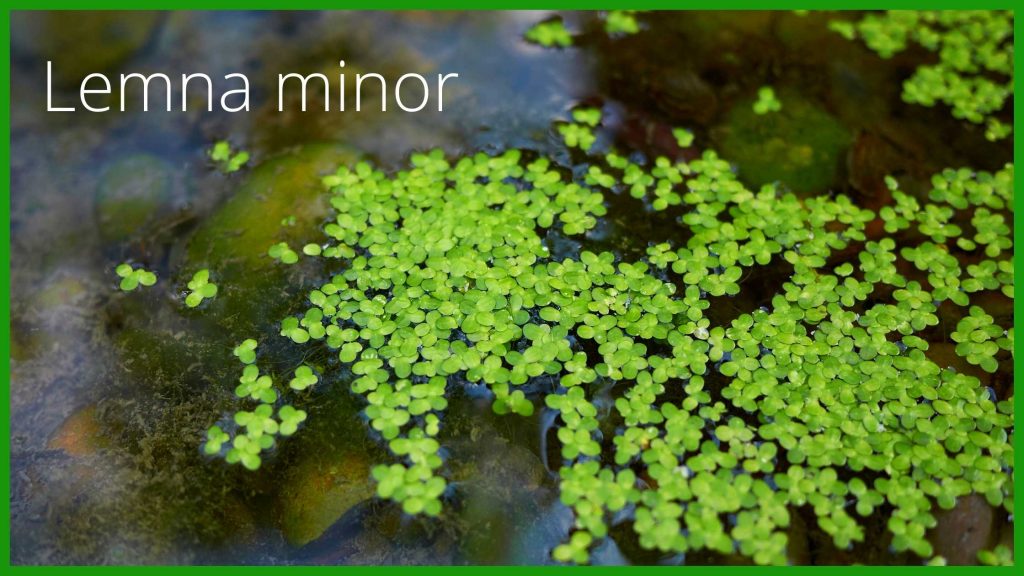
This species is also known as the common duckweed or as lesser duckweed. This is the most popular species in the hobby.
Lemna minor can grow up to 4 leaves per plant. They have relatively longer roots, usually around 1-2 cm long. The tiny leaves are rounded or oval in shape.
Wolffia arrhiza
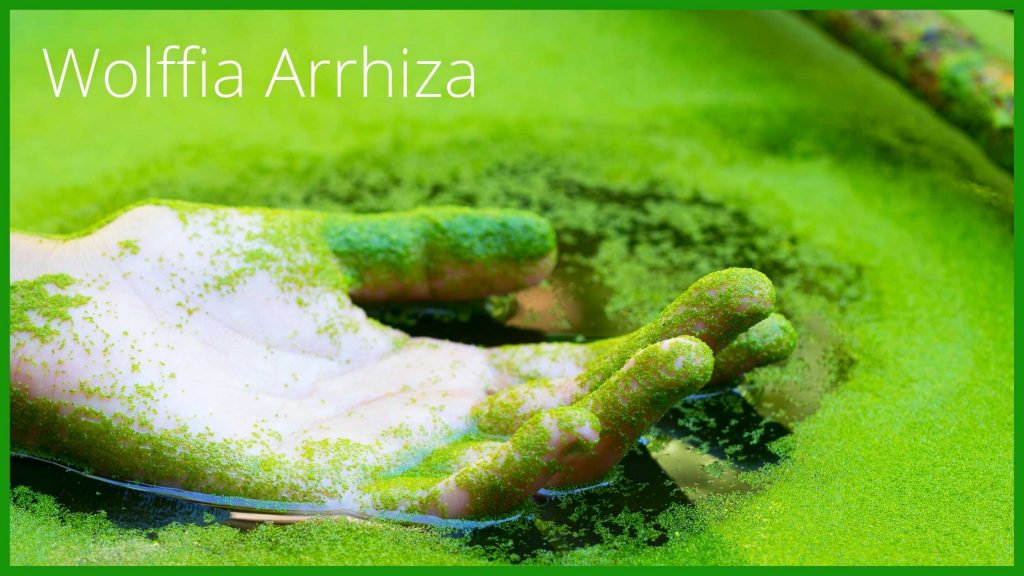
This is the smallest Duckweed and the Smallest vascular plant in the world. Moreover, Wolffia is also known as the smallest flowering plant on earth. Such a record breaker!
The fronds of the Wolffia arrhiza grow to about 1 mm in size and are flat on top. With a leaf-like base, these fronds are solar panels that absorb the sun’s energy. Through photosynthesis, the plant is able to create carbohydrates from sunlight and release oxygen and water as byproducts.
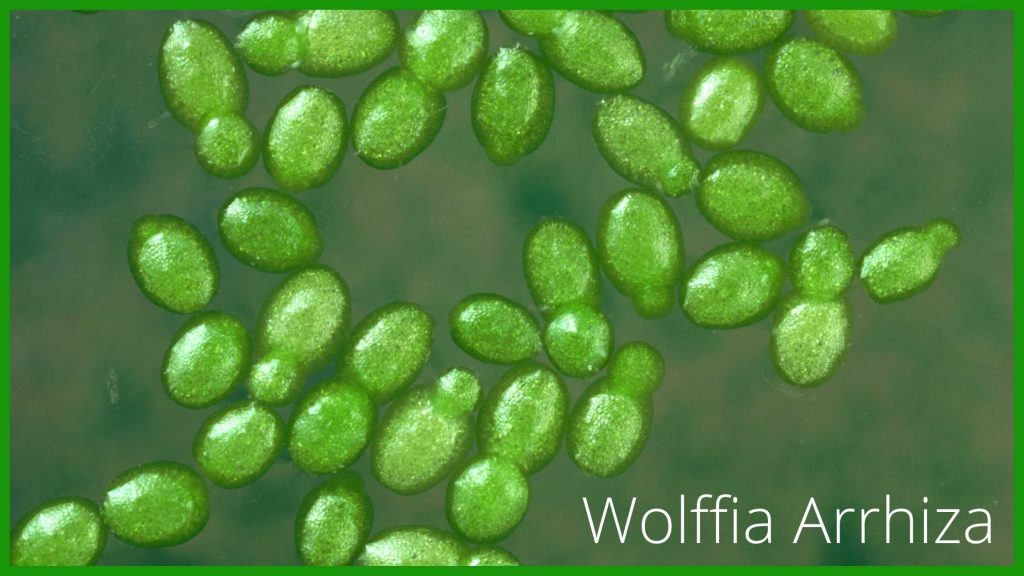
Wolffia arrhiza does not have a root. So it’s called “spotless watermeal” or the “rootless duckweed“.
Remember that, this tiny, protein-rich plant is favored by many aquarium fish, so it won’t be easy for you to grow them in your aquarium or pond with them consuming it all the time.
Spirodela polyrhiza
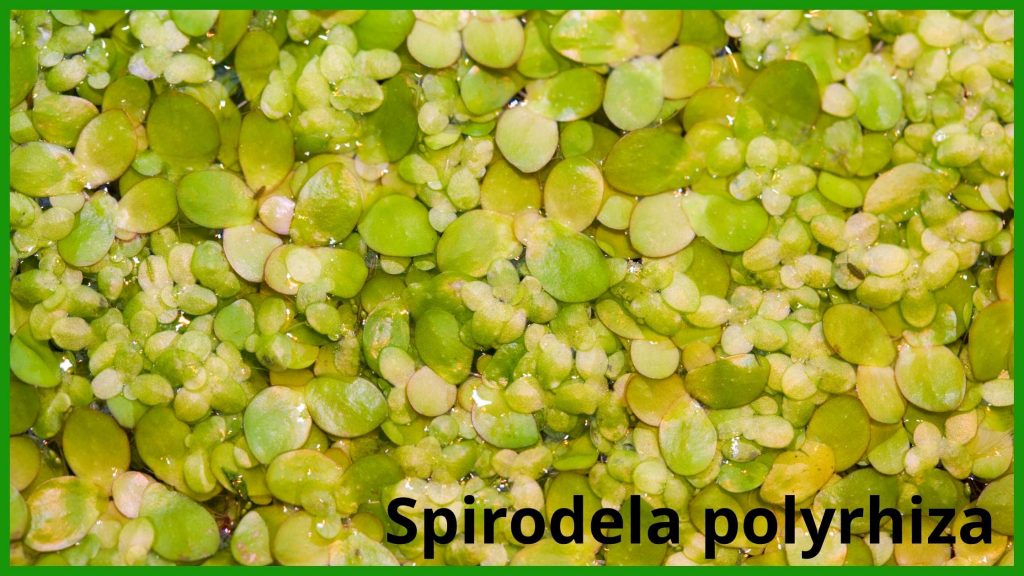
Also known as giant duckweed, Spirodela polyrhiza is very popular in the planted aquarium hobby.
Giant Duckweed is a completely unique plant that turns your home aquarium or pond into a little jungle. This natural floating aquarium plant simultaneously produces oxygen and food for your large fish while creating a beautiful habitat.
Taxonomy Of Duckweed
Well, Duckweed is a floating, flowering aquatic plant subfamily known as Lemnoideae. This subfamily derives from the family Araceae. Duckweeds float on top of still water, or just below the surface. They are often called ‘baby root’ (probably due to common duckweed with longer roots), I suppose you are familiar with the term as an aquarium hobbyist. Lemnoideae naturally occur in ponds, lakes, and slow-moving streams, and can grow rapidly in dense clusters.
There’s a little confusion about the scientific classification of duckweed. The older classifications have kept them in a different family called, Lemnaceae. So if you find different information about how these floating aquatic plants are classified on the internet, don’t get so surprised.
Optimal Conditions for Duckweed Growth in Aquariums
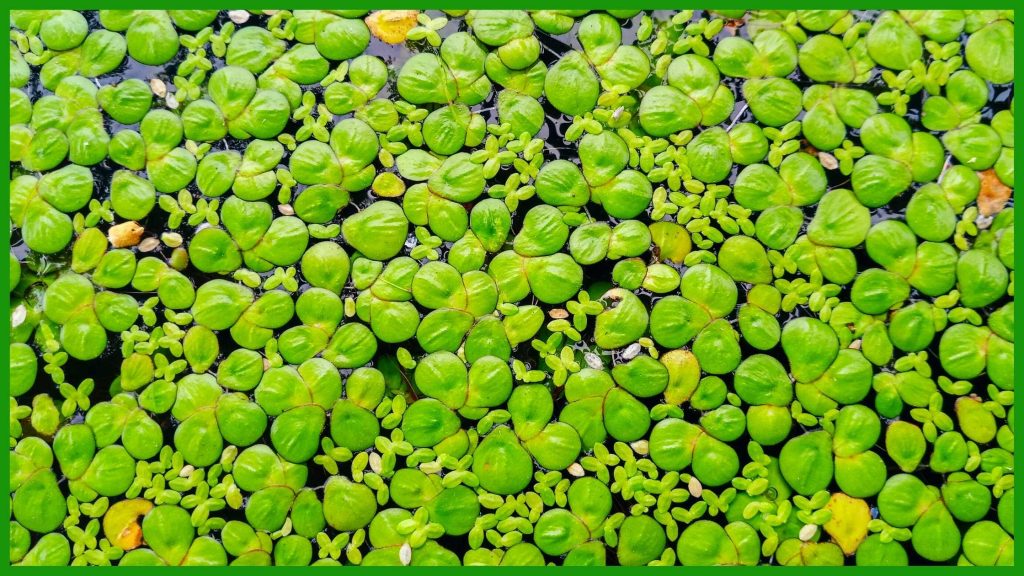
Duckweed is extremely easy to grow. It is absolutely a beginner’s aquatic plant. Most of the time the problem is how to control its rapid spread, not how to grow it in the first place.
But just like other aquatic plants, Duckweed does respond to water parameters and other required conditions like lighting and water depth. So, let’s have a look at them one by one.
pH range
Duckweed can live in water with a pH range of 5 – 9, but they grow the best over a pH range of 6.5 – 7.5.
Water temperature
This aquatic floating plant is less sensitive to water temperature, hence it can thrive in both cool and warm water. Duckweed can thrive in temperatures around 10 to 33°C. In the wild, they have unique adaptations to protect against extreme cold, many species of duckweed form a turion, or dormant leafy structure, that sinks to the bottom of a lagoon for protection. In the springtime, when temperatures warm up again, duckweed resumes growth on the surface.
Water flow
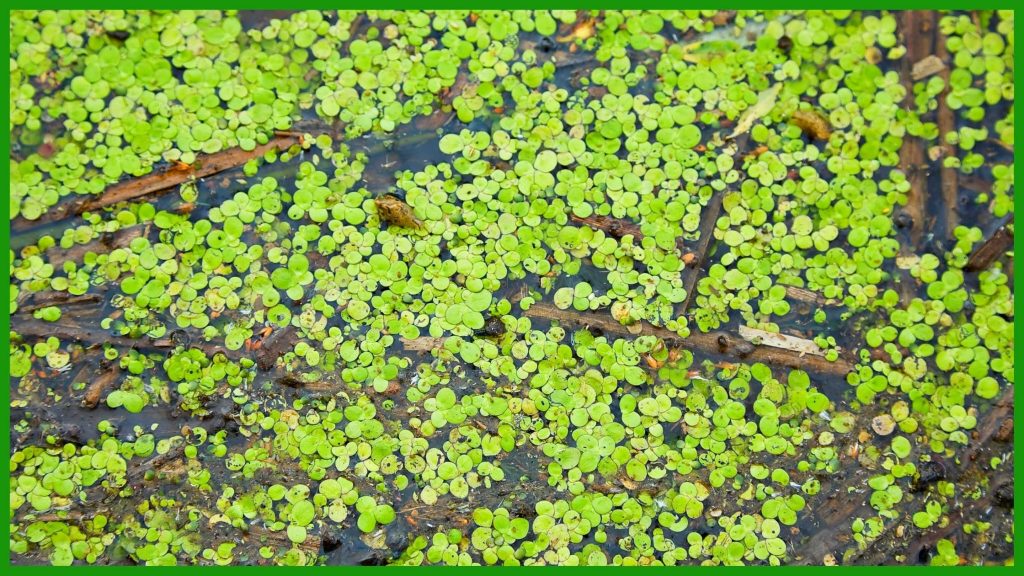
Remember that the duckweeds thrive in still water and where there is a minimal disturbance in the water surface. So it won’t probably grow in tanks with strong water flows, generated by powerheads.
Under optimal conditions, these floating plants can double their colony merely in two to three days. Hence they can spread like a water weed under these ideal conditions as their name implies.
Water deapth
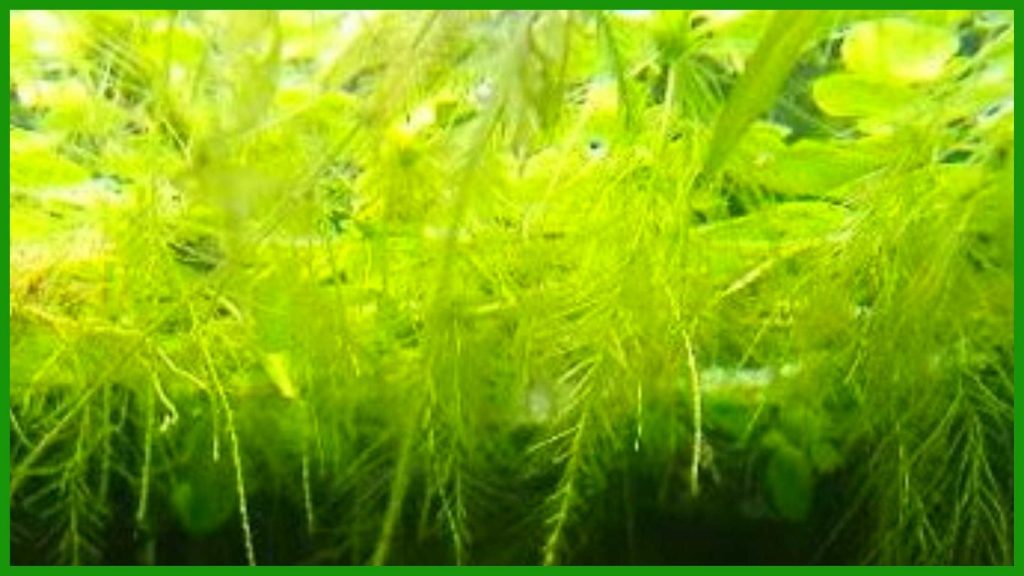
Duckweed isn’t just a low-maintenance plant, it’s also a great choice for aquariums of all sizes, big or small. But you should keep in mind that while they can grow in as little as an inch of water, they won’t grow as quickly in deeper tanks.
Therefore, aquarium depth is one of the most important factors to consider before buying duckweed. Although it can grow in depths of 1 to 20 inches, it doesn’t expand as vigorously. That’s why it may not be a good choice for deep aquariums.
Benefits Of Duckweed In Your Aquarium And In Your Pond
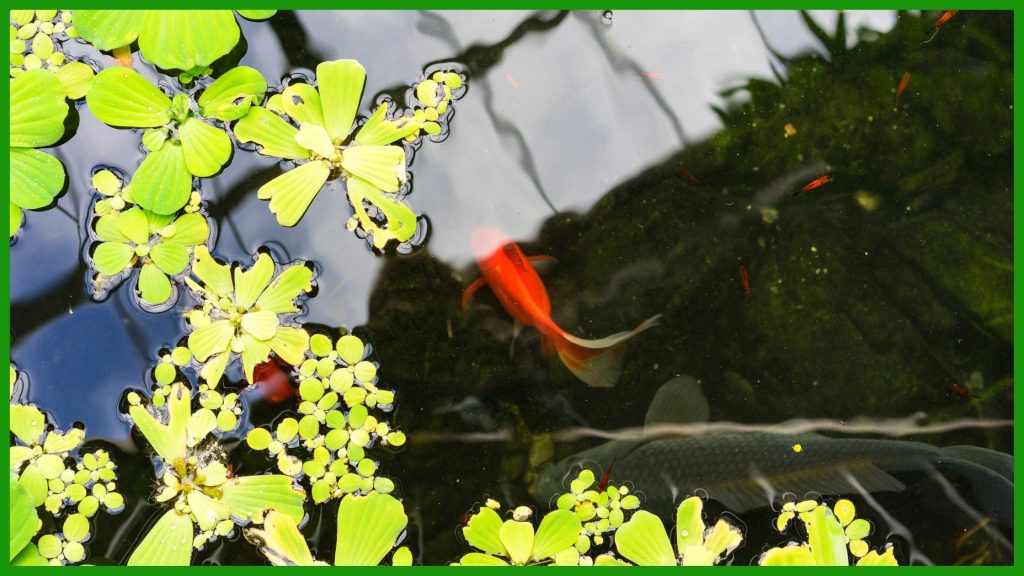
Duckweed provides the perfect place for fish to graze on and creates a beautiful green blanket over the surface of the water. The presence of duckweed makes your fish tank even more visually attractive.
Because Duckweed is a free-floating aquatic plant that grows on the surface of still or slow-moving freshwater, makes it much easier to grow than water lilies or other aquatic plants. It requires no substrate, and won’t cover up the space of fish or other critters, which is good for all kinds of tanks.
The tiny leaves have a minimal impact on the clarity of the water and give your tank an additional green tint when they grow. Thanks to the unique structure of duckweed, this plant can efficiently absorb nutrients and minerals from water, mainly via the leaf.
It’s a 100% beginner aquarium plant, which requires minimal care close to zero. In fact, the problem seems to get rid of excessive plants than actually getting them to grow.
Do you like beginner aquarium plants that require minimum care? Then you might want to read about Peacock Moss.
So, why exactly you should grow duckweed in your aquarium? Let’s find out the benefits of duckweed one by one.
Duckweed can limit and control the algae growth
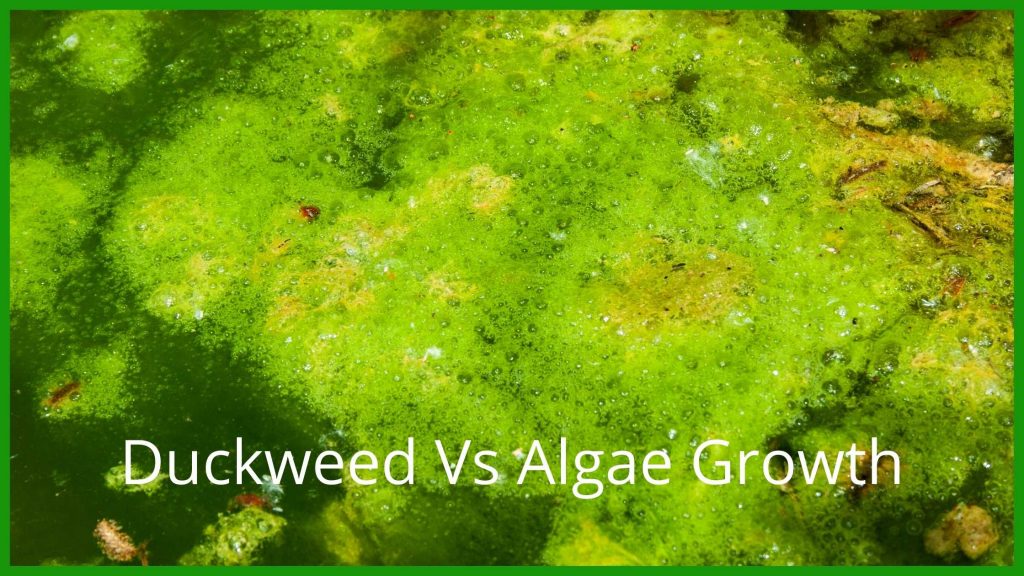
These tiny floating plants can help control algae growth and its rapid spread. Duckweed is really good at absorbing excessive nutrients in your tank. And the layer of these plants can help reduce intensive light reaching your aquarium. Both these characteristics of duckweed colonies can help control unwanted algae growth in your tank.
But you have to make sure that the blanket of these plants doesn’t cut off atmospheric oxygen from reaching your tank. And if you have other aquatic plants which require a high intensity of light, make sure to properly remove duckweed from the top of your aquarium water column.
Duckweed can act as a natural filtering system
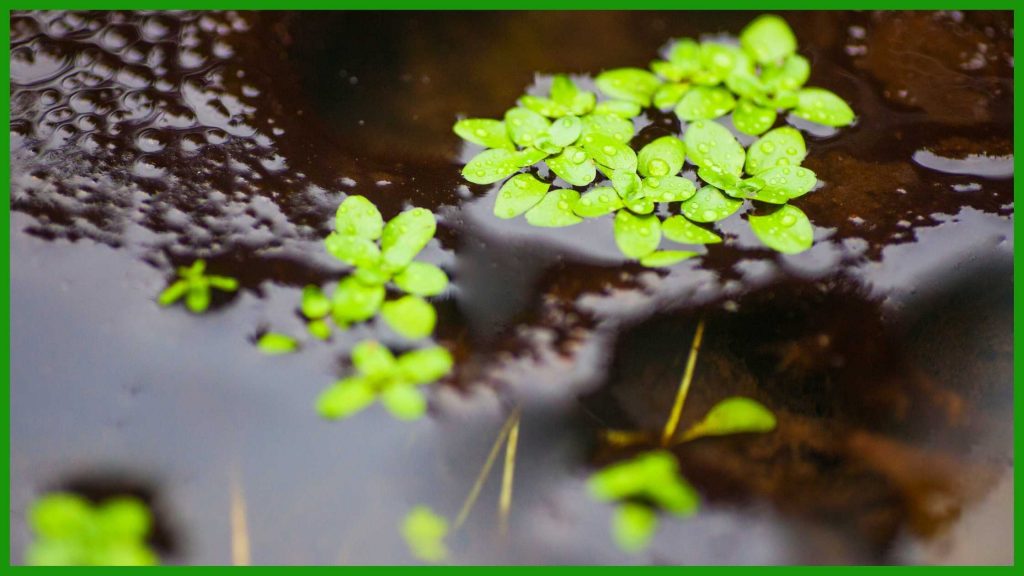
These floating plants are really good at absorbing nutrients and other substances from the water. There are lots of toxins produced in an average aquarium on a daily basis. Ammonia, nitrites, nitrates, and potassium are toxic to aquarium fish and can be lethal.
Duckweed can absorb these toxins effectively from the water column and grow themselves quite fast. Hence with a mat of duckweed, you are less likely to have ammonia or another toxic build-up in your tank.
Duckweed can be effectively used as a water quality indicator
If you carefully investigate the Duckweed growth in your tank, you can get a clear idea about how the nitrates levels are building up. If these plants grow really fast with shorter roots that means there is a high concentration of nitrate levels in your tank. This is really bad for the fish in the tank as nitrates are highly toxic to them in many ways.
If the Duckweed growth is normal and if they have longer roots, then it’s a clear indication that your aquarium has a lower level of nitrates. The roots tend to grow deeper looking for nutrients like nitrates if they are presented in low amounts in your aquarium.
Duckweed provides a natural habitat
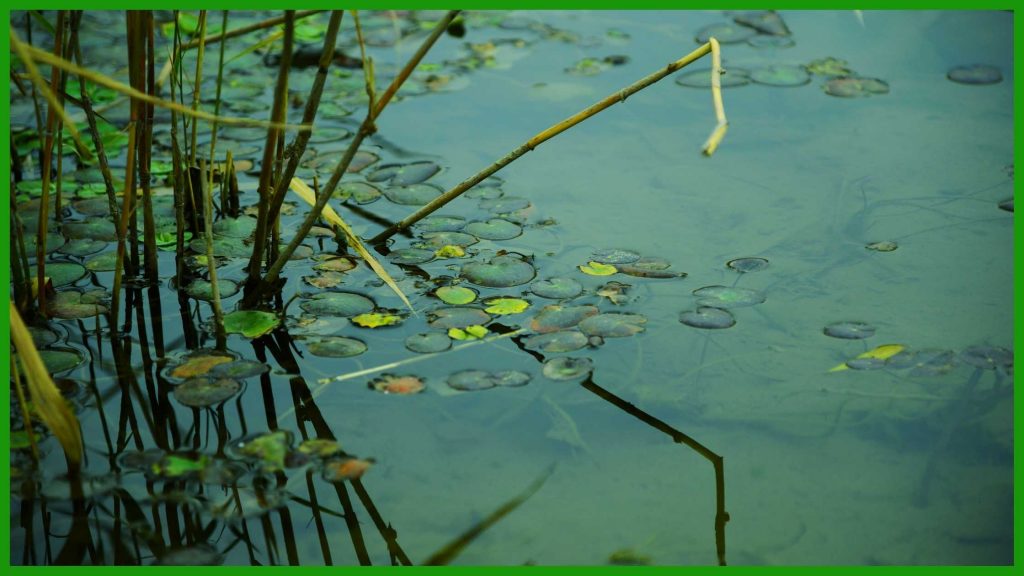
When grown as a thick mat, these aquatic plants can resemble a natural habitat for most of the smaller fish and tiny invertebrates. This habitat is good for fish looking for some shade for both protection and roaming around. Guppies and betta fish love this kind of natural habitat in their aquatic homes.
Smaller fish love to take refuge among these floating plants, causing to reduce their stress levels. Small fry fish can hide among Duckweed leaves and roots so they won’t get eaten. Controlled lighting, the green shading all helps to reduce stress in your fish.
At the end of the day fish with less stress makes your life a lot easier as an aquarium hobbyist. Stress is a strong factor for a lot of fish diseases.
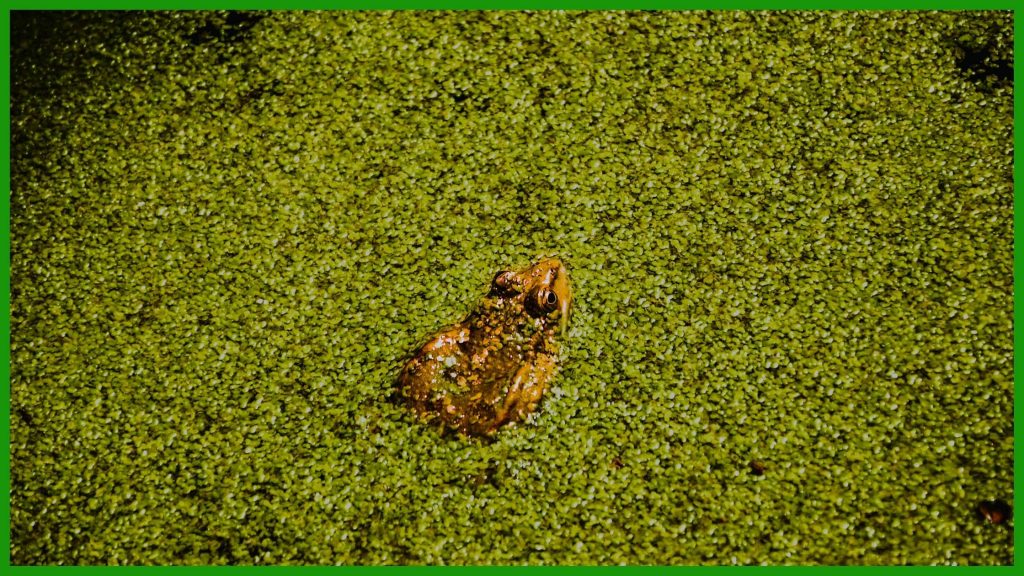
Also, the Duckweed mat can work as a barrier for some of the fish with a reputation to jump out from their aquariums. These fish can jump out when they are stressed or spooked. But with a natural barrier between the water and the air, this tendency can reduce to a great extent. Note that this natural barrier won’t work for fish like snakeheads or rope fish. They need a proper lid to prevent them from jumping out of your tank.
Duckweed is great fish food source
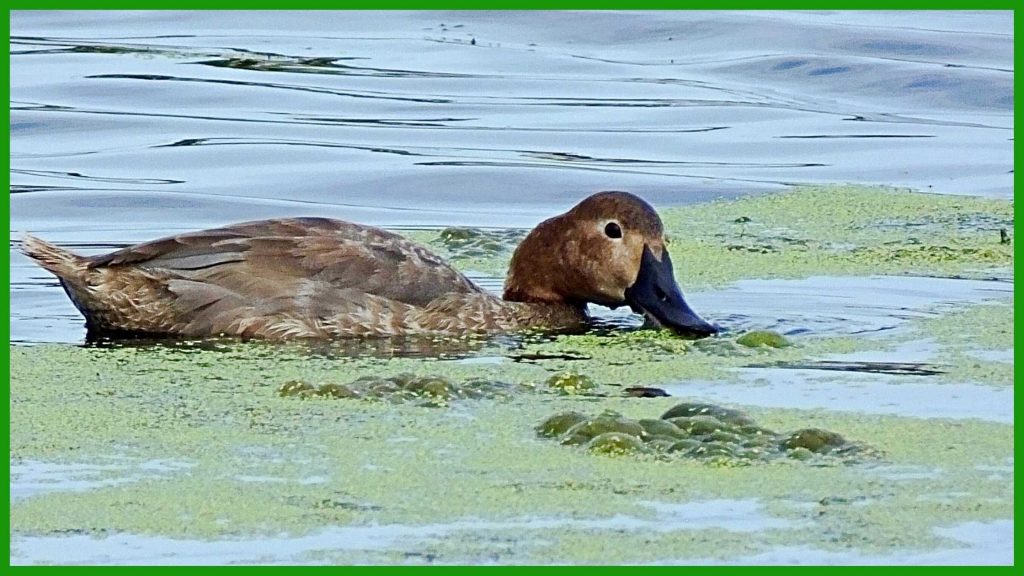
These plants are tiny powerhouses of nutrients. And hence can be a great source of food for your aquarium fish. Some of the fish love to directly feed on Duckweed or nibble on them bit by bit.
Both small fish and large fish, love eating duckweed. They feast on its high protein content, and with immediate results in their growth. Mosquito fish, Cichlids, Tilapia, Koi fish, Grass Carp, and others love consuming these tiny, floating aquatic plants.
If you keep red-eared turtles, then you might already know that they love eating duckweed! And of course, waterfowls love eating these floating plants too!
Things To Watch Out When You Have Duckweed In Your Aquarium/Pond
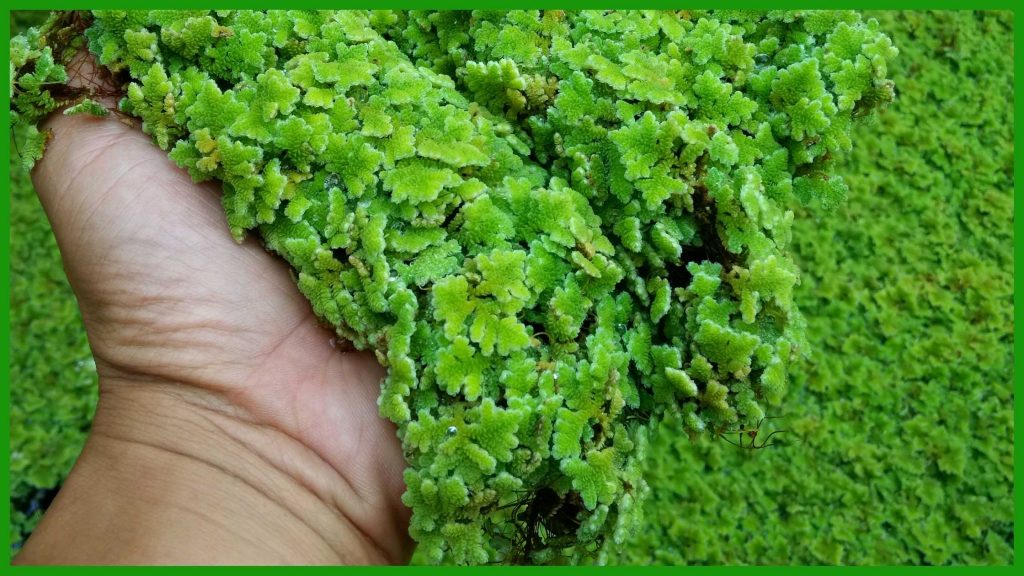
Too much good can eventually turn into bad. This is more true with Duckweed than other aquarium plants. It can double in just 2 or 3 days if ideal conditions are met. The idea is to not let your duckweed become waterweed, grow and spread out of control.
Nutrient uptake
Duckweeds are masters of feeding on dissolved nutrients in the water column. This comes as a great benefit in controlled duckweed populations. But when these plants overpopulate due to poor maintenance, they can easily deplete nutrients required for other aquatic plants. This can largely affect your moss and aquatic ferns as they also rely on water to absorb nutrients.
Increased load of decomposing plant materials
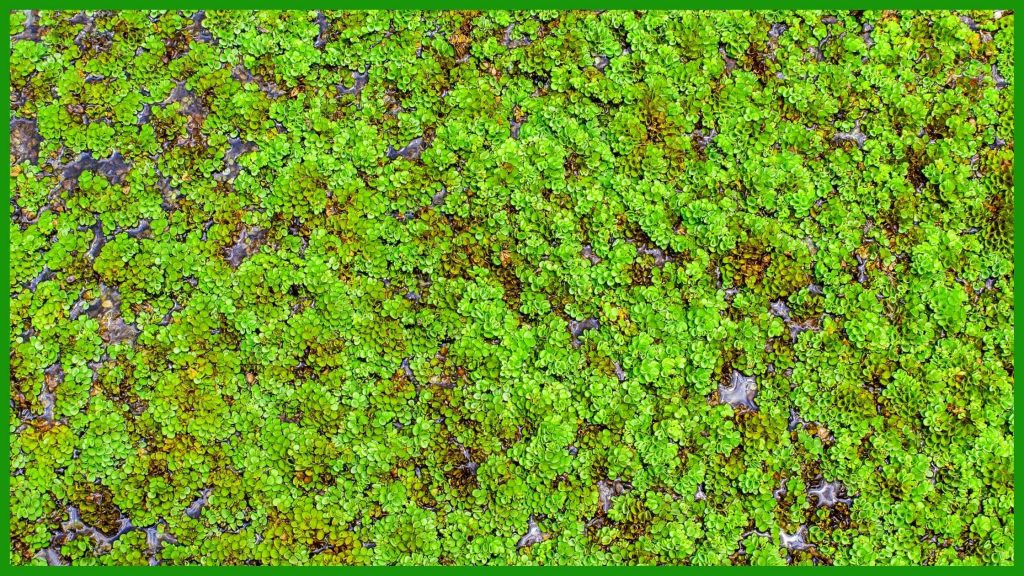
When you have too much Duckweed with no control measures, it can lead to unwanted issues. Remember that when you have a colony of duckweed, a part of them are constantly dying. These dead Duckweed will increase the decomposition load in your aquarium, meaning the dissolved oxygen levels will be depleted during the decomposing process.
Duckweed can reduce the aquarium lighting from reaching down
These aquatic plants can grow and reproduce at a rapid rate. Especially when you have excessive nutrients and intensive lighting in your aquaria. When that happens duckweed will absolutely take over the water surface of your pond or fish tank. This will reduce the light reaching the bottom of your tank, hence the other aquatic plants will start to die slowly if you don’t take action.
This is why the hobbyists must always remove the excessive Duckweeds if there are any. Alternatively, you could arrange lighting in such a way it can reach the other parts of the aquarium.
Duckweed cover can prevent air exchange inbetween the aquarium water collumn and atmostphere
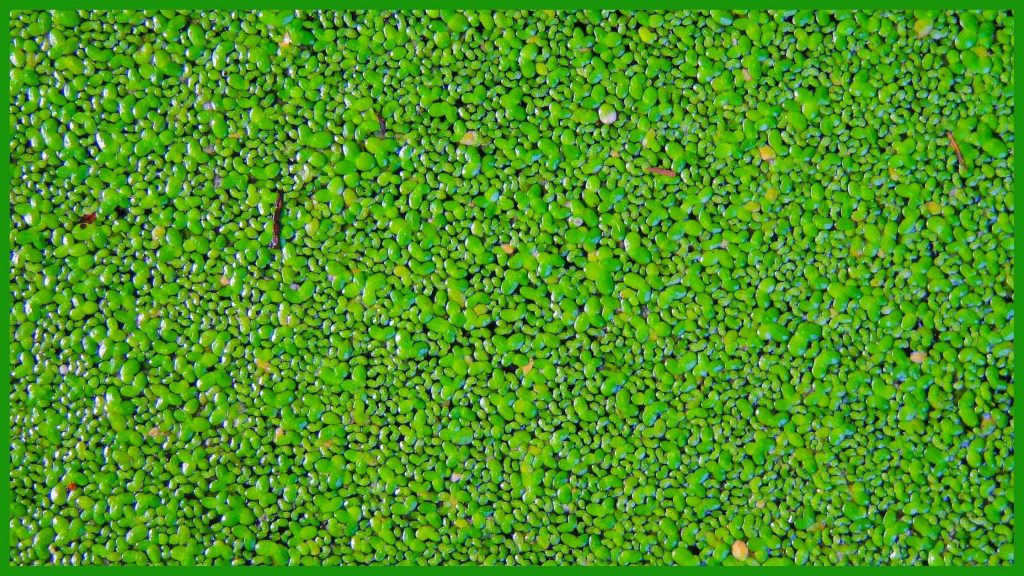
The other issue with these plants taking over the water surface is, that this plant cover can largely reduce the atmospheric oxygen from dissolving into the water. The same is true for CO2 from escaping the aquarium water column. If you don’t have a proper way of aerating your tank this can be lethal for your fish, and then for the other plants as well.
Duckweeds can clog your aquarium equipments
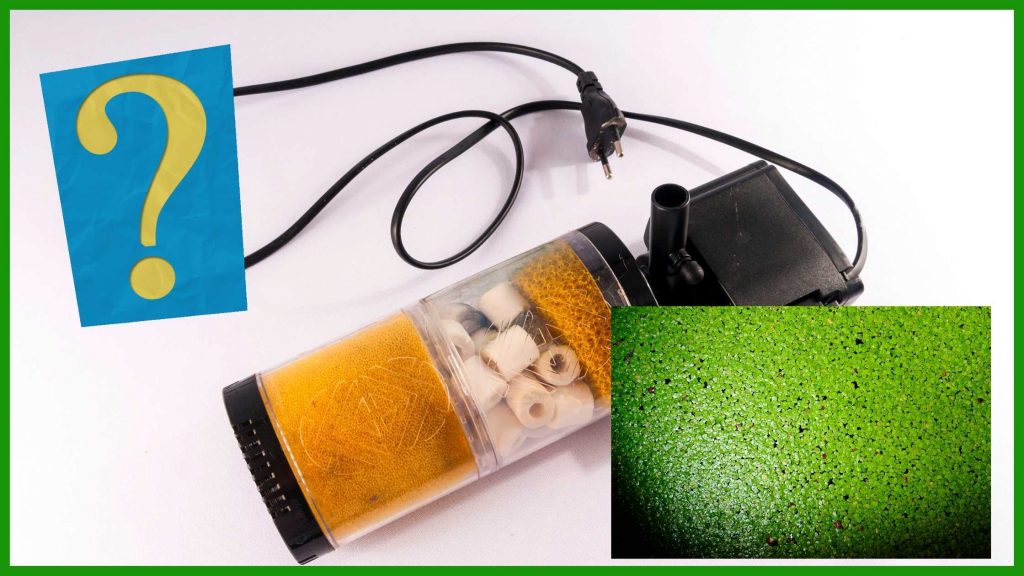
These tiny plants can often get sucked into your aquarium filter and clog your powerhead. Though it isn’t a serious issue, you might want to clean your submerged aquarium equipment once in a while because of Duckweeds.
So, Are the Duckweeds Good For Your Aquarium?
This question has no direct answer as the answer heavily depends on many different factors like aquarium type, the types of fish you keep, how you maintain your tank, and so on.
Undoubtedly, this unique set of floating aquatic plant species can be really advantageous for your aquarium or pond as they provide natural filtration, protein-rich food, algae growth control, a natural habitat, and so on. But you must know what you are doing and must be willing to do some maintenance.
Moreover, these plants require minimum to zero care compared to other aquatic plants in the aquarium trade. It’s an absolute beginner’s aquatic plant! All you need is to respect the remarkable growth and the reproduction rate of Duckweed and keep them under control.
Have any questions? Please post them in the Petfish101 Forum or in our Reddit community.

Pingback: Red Koi Fish - Untold Guide - Pet Fish 101
Pingback: Amazon Frogbit As A Floating Aquarium Plant - Pet Fish 101
Pingback: How Long Do Angelfish Live? - Improving Their Lifespan - Pet Fish 101
Pingback: How Long Are Platy Fish Pregnant For - Pet Fish 101